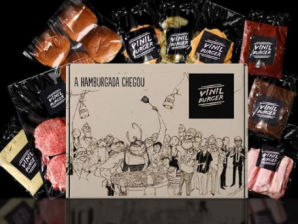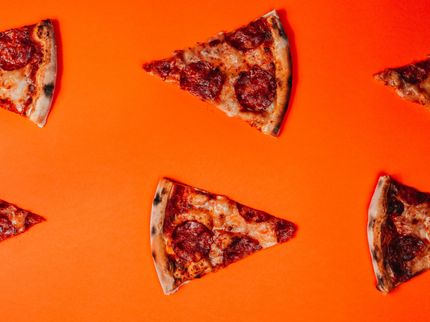COVID-19 has reinvented dining and delivery in Latin America
The pandemic has created new attitudes and concerns toward dining
Foodservice is one of the industries hit hardest by the COVID-19 pandemic. In order to control the outbreak, many countries across the Latin American region went into lockdown from mid-March 2020, with the exception of essential businesses like supermarkets and drugstores.

Mintel
Faced with this scenario, food delivery became the way for foodservice companies to remain active during the pandemic. But more stringent safety and hygiene standards have forced delivery service providers to adopt contactless delivery.
When restrictions start to be lifted, recovery will still be slow as Latin American consumers will have become more cautious about eating out and will try to avoid crowded places. People in Latin America have the habit of sharing food, but this poses the risk of spreading the virus, especially in restaurants. Meal-sharing habits will be affected by the fear of infection for some time, making consumers prioritize single portions.
The COVID-19 pandemic is forcing foodservice operators to find ways to survive, thrive and revive
The COVID-19 pandemic has left even the most successful restaurants vulnerable, but foodservice companies are coming up with a number of ways to keep business going:
-
Pay-it-forward schemes and gift cards for when foodservice reopens.
From ready-to-eat to ready-to-bake: Meal kits, frozen and refrigerated meals to encourage at-home cooking.
Creating partnerships or “collabs” to extend offerings and support other small businesses.
Selling surplus products or groceries.
Offering at-home experiences and expertise.
Increasing online presence while integrating online with offline business.
Pay-it-forward schemes are popping up across the region
Argentina: Compra Futura
A group of digital entrepreneurs in Argentina has developed a digital purchase voucher solution so that any small business owner can create, sell and manage their own vouchers.
Peru: Unidos en la mesa
In Peru, Anheuser-Busch InBev-owned beer brand Cusqueña has launched a platform where consumers can buy vouchers from their favorite restaurants and bars, which they will be able to enjoy in the next six months when outlets can open again.
Mexico: Salvemos restaurantes
In Mexico, Culinaria Mexicana is helping restaurant owners stay afloat during the COVID crisis. They created a campaign to help restauranteurs come up with a business plan supported by the sale of vouchers, online delivery and take out.
From signature meal kits to signature-ready meals
Operators in Brazil are exploring meal kits and ready-meals to expand offerings. Supermarket chain Pão de Açucar’s Cheftime Restaurant utilizes the supermarkets’ idle kitchen and deli stations to make meals in an effort to meet the increased demand for pampering and convenience.
Vinil Burger offers – on top of their ready-to-eat burgers – a quarantine burger kit to let people recreate their dining experience at home.
From bakery to grocery store with enhanced safety and convenience
In Peru, the iconic Lima-based bakery Pasteleria San Antonio has reopened as a bakery as well as a grocery store. The bakery has been rebranded as Bodega San Antonio and has added enhanced convenience and flexibility to ensure safety and speed through:
-
Subscription plans
Delivery services
Drive-thru
Click-and-collect schemes
Consumers still need indulgence and celebrations in their lives
COVID quarantines may have redefined special occasions, but that hasn’t stopped people from celebrating or pampering. New food delivery services like Nestle-owned Vem de Bolo are meeting this demand. Vem de Bolo’s “Digital Birthday Party” allows people to celebrate a virtual birthday party at two different locations. The service includes two birthday cakes and two brigadeiro kits with 15 units each, delivered to two different locations.
Delivery apps are responding to concerns about support for couriers
Didi Mexico and 99 Brazil
To mitigate the economic impact that COVID-19 may have on DiDi’s and 99 drivers and couriers, the company created a US$10 million fund to provide up to 28 days of income to drivers or couriers who test positive or are under mandatory quarantine.
iFood Brazil
iFood has created a R$50 million fund to support restaurants affected by COVID-19, R$1 million to support couriers aged 65 and over, and another fund of R$1 million for their couriers that test positive.
UberEats Mexico
Uber Eats is offering financial assistance for up to 14 days to couriers who are diagnosed with COVID-19, or placed in quarantine or asked to self-isolate. They have set a maximum payment amount.
Countries are preparing for restaurants to reopen
Chile plans to become the first country in the world to issue coronavirus “immunity passports,” which would allow recovered COVID-19 patients to go back to work. The South American country has tested more people than any other country in Latin America.
Colombia acted faster than most countries in putting in place measures to prevent the spread. As a result, the country is now experiencing a flatter curve and has started relaxing quarantine rules. These two markets are now planning for restaurants to reopen and this is what the restaurant of the future may look like:
-
Temperature checks
Reduced seating capacity
Increased outdoor spaces
Sanitary kits
Menu screen displays to feature dishes, specials and promotions
Mobile ordering and contactless payment options
Tables free of silverware and condiments
PVC and plastic barriers, plexiglass dividers or six feet of separation between table setups
With or without restaurants being open, the pandemic has created new attitudes and concerns toward dining
Highlight hygiene measures
Restaurants must utilize social media to show behind-the-scenes operations in real-time. Foodservice companies need to show that their venues, cooking processes, meals, drinks and packaging meet higher safety and hygiene standards.
Value is king
Value for money will continue to be crucial. Brands will need to keep costs down (maximizing and repurposing ingredients) while delivering a product that stands out. Fine dining will need to tweak menus, perhaps leaving gourmet dishes for the weekend.
Promote a friendly physical distancing
Approach contactless interaction with a friendly attitude that shows empathy and caring. The post-COVID dining experience will require a new dining etiquette supported by a good balance of distancing and friendliness.
Make it memorable
Offer right-sized, decadent appetizers and desserts as affordable treats. The recession won’t put an end to the need for indulgence and memorable experiences. But consumers will be more mindful of their spending and will need good reasons to spend.
Other news from the department business & finance
Most read news
More news from our other portals
See the theme worlds for related content
Topic world Hygiene
Hygiene is the foundation of the food and beverage industry. Hygiene technology ensures that products are not only tasty, but most importantly, safe for consumption. From advanced cleaning processes to sterile filling techniques, the industry is constantly setting new standards to prevent contamination and the growth of microorganisms.

Topic world Hygiene
Hygiene is the foundation of the food and beverage industry. Hygiene technology ensures that products are not only tasty, but most importantly, safe for consumption. From advanced cleaning processes to sterile filling techniques, the industry is constantly setting new standards to prevent contamination and the growth of microorganisms.





























































